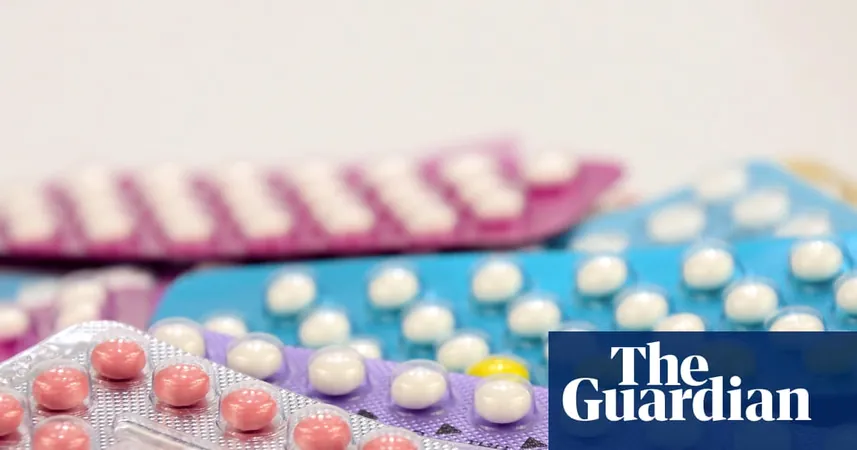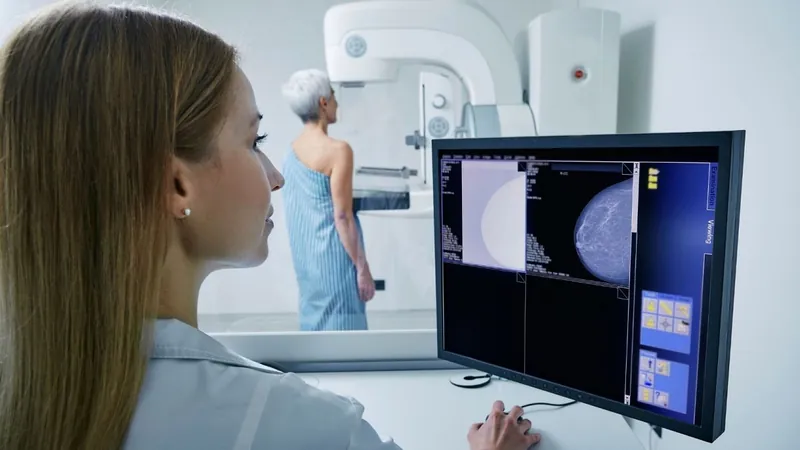
The Shocking Impact of Misinformation on Women's Contraceptive Choices
2025-09-13
Author: Liam
Social Media's Role in Contraceptive Choices
A startling new study reveals that misinformation circulating on platforms like TikTok is heavily influencing women's perceptions of the contraceptive pill, leading many to abandon it altogether. This alarming trend could shift the landscape of women's health in profound ways.
The Psychological Trap of the 'Nocebo Effect'
Researchers at Sheffield University have identified a phenomenon known as the 'nocebo effect,' where negative beliefs about a treatment can manifest as real psychological side effects. This effect is closely tied to feelings of anxiety, depression, and fatigue, causing women to be cautious about using the pill.
A Decline in Usage and Rising Abortions
Despite being the most popular form of contraception in England, the use of the pill has dramatically decreased: from 39% of women accessing NHS sexual health services in 2020-21 to just 28% in 2023-24. This worrying decline has coincided with a surge in abortions—the highest recorded at 251,377 in 2022, a staggering 17% increase from the previous year.
Worries About Influencers and Misinformation
Health officials are increasingly concerned about the influence of social media personalities who warn against the contraceptive pill. Claims range from the pill 'robbing women of their health' to exaggerated risks like thyroid issues and blood clots.
Unpacking the Nocebo Effect's Four Key Factors
Dr. Rebecca Webster and Lorna Reid, the study's co-authors, identified four psychological factors underlying the nocebo effect linked to the pill: an initial expectation of harm, low confidence in medical advancements, a belief in overprescription, and sensitivity to medications.
Real Experiences, Real Consequences
Interestingly, while the side effects may be psychologically driven, they are real and often deter women from continuing the pill. Among 275 surveyed women aged 18-45, nearly all reported at least one side effect, demonstrating the significant impact of psychological expectations.
The Rise of Anti-Medicine Sentiment
Dr. Janet Barter of the College of Sexual and Reproductive Healthcare notes a growing trend of anti-big pharma sentiment on social media, particularly after the COVID-19 pandemic. With rising mental health issues among young people, many are increasingly wary of anything they believe could exacerbate their anxiety or depression.
The Need for Better Sexual Education
Brook, a prominent sexual health provider, emphasizes the need for more accurate information about contraception. Misinformation is taking root partly because healthcare professionals and educational institutions have not provided adequate details about contraceptive options.
The Call for Honest Conversations
Experts are urging for more open and honest discussions around hormonal contraception, aiming to dispel myths about weight gain, fertility, and even attraction. In this era of digital misinformation, fostering clear communication can help women make informed choices regarding their health.









 Brasil (PT)
Brasil (PT)
 Canada (EN)
Canada (EN)
 Chile (ES)
Chile (ES)
 Česko (CS)
Česko (CS)
 대한민국 (KO)
대한민국 (KO)
 España (ES)
España (ES)
 France (FR)
France (FR)
 Hong Kong (EN)
Hong Kong (EN)
 Italia (IT)
Italia (IT)
 日本 (JA)
日本 (JA)
 Magyarország (HU)
Magyarország (HU)
 Norge (NO)
Norge (NO)
 Polska (PL)
Polska (PL)
 Schweiz (DE)
Schweiz (DE)
 Singapore (EN)
Singapore (EN)
 Sverige (SV)
Sverige (SV)
 Suomi (FI)
Suomi (FI)
 Türkiye (TR)
Türkiye (TR)
 الإمارات العربية المتحدة (AR)
الإمارات العربية المتحدة (AR)